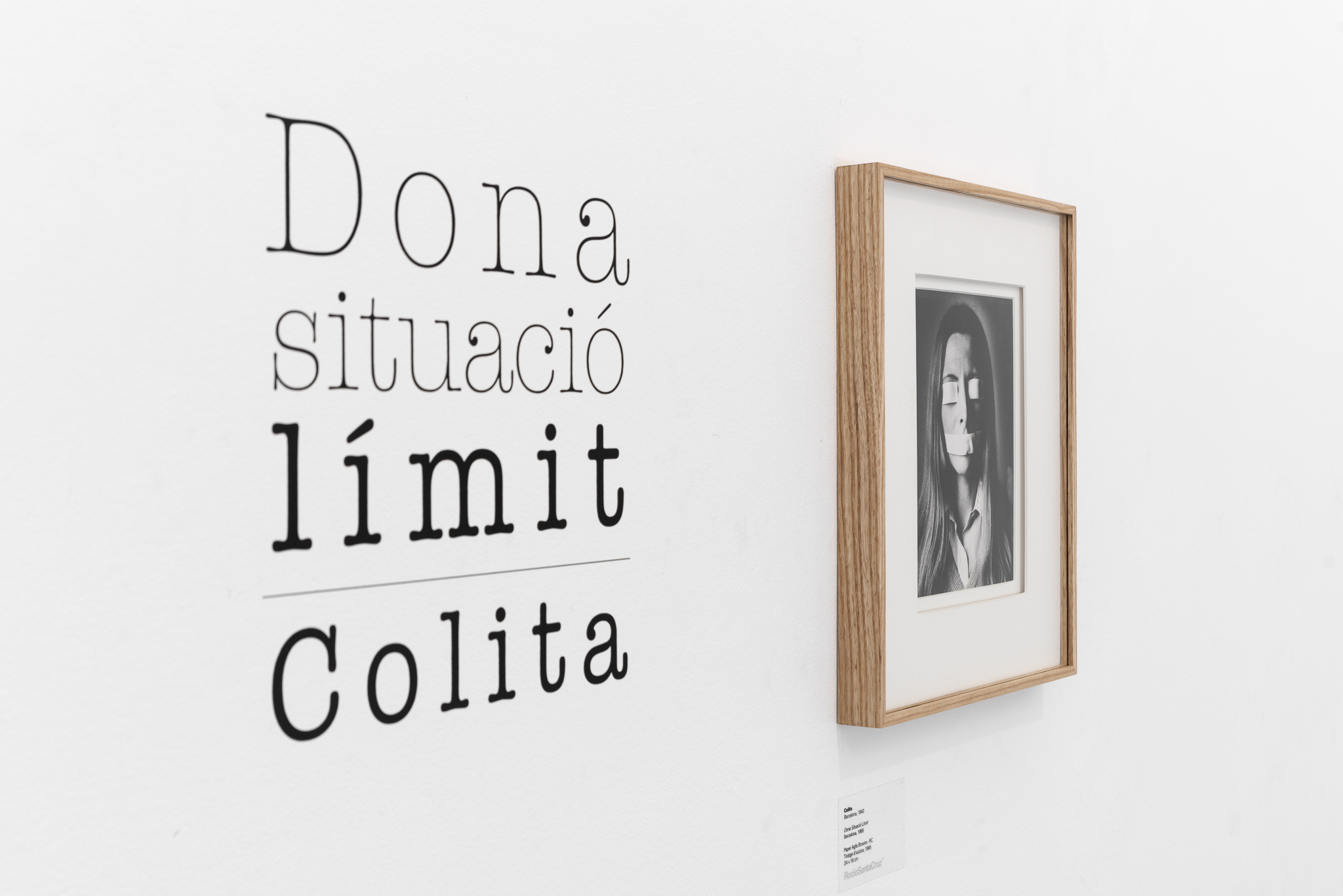Colita – Dona Situació Límit

Colita – Dona Situació Límit
The RocíoSantaCruz Gallery presents Dona Situació Límit, a practically unpublished exhibition of 32 photographs by Colita, whose original vintage copies, shot by the photographer, were exhibited for the first time in 1985 at the Caixa Exhibition Hall in Barcelona, with the collaboration of the Barcelona City Council, and under the title: Limit situation of the marginalization of the women.
Thirty-seven years later, we recover the 32 original print runs in an exhibition project that seeks to investigate the contemporary spirit that permeates all of Colita’s work.
The program for the exhibition in 1985 included an unpublished text by Mª Aurèlia Capmany, councilor for culture at the Barcelona City Council at the time, and which we reproduce again:
True, we already know and they never tire of telling us: illness, old age, poorly paid work, loneliness, and death do not belong exclusively to women. Even those who want to deny the evidence remind us that women live longer, that they are stronger, come on, that they are more miserable, and do not realize that with this argument they further demonstrate the marginalization of women.
Marginalization does not mean more sadness or more infections or more insomnia or more fear of living, it simply means that once you are on the margin where you were born, there is no way to make the leap and get on the right track. Living on the margins means that one’s own life does not go through the real path, that it does not lead anywhere, that it depends on another, like a hindrance, without the ability to make decisions of its own, that it depends on the sound that they play and that marks the way to the path.
Marginalization is sometimes not noticeable, or very little noticeable. Sometimes it seems that the woman has placed herself on the side of the road, skipping the rhythmic step of the males, well uniformed, “dali dali pel campi ral”, and you would say that they have placed themselves on the sidelines by vocation, by decision, by laziness, out of mischief, as if they were saying: Apa, I don’t want to come! If you look closely, you will realize that there is no one who goes without dinner due to lack of hunger and that if he stays, it is because he is sick.
Therefore, in order to make distracted people understand to what extent women find themselves, thanks to the terrible organization of the social body, in an extreme situation, that is, leaning against the wall, you have to go with the aim ready and hunt her down. the moments in which she is not in the mood to play the role of they all turn me on!
To undo the grateful theses, which cradle good consciences, we must insist on ideas as simple as these:
The natural place for women is not the kitchen.
Motherhood is not the only justification for a woman’s life.
The woman is not happy selling her work at a bargain price.
The woman is not at all satisfied when they rape her, or when they want to rape her and not even when they tell her: Pisa brunette!
The woman simply wants it all: responsibility, decision-making capacity, intervention in collective life, enjoyment of all the gifts of life, risk and fullness. The woman is, first of all, a person, and the fact of being a person-female should not invalidate her capacity to be a person. And if it is necessary to change the social body for this to be possible, then let’s change it.
The validity that, unfortunately, Capmany’s text and Colita’s images continue to have, force us to reread and look again at what we as a society cannot accept. And that Colita with her gaze transgressed from the complaint to the work of art.
A few years earlier, in 1977, Colita collaborated with Capmany in publishing the first openly feminist graphic book of post-Franco history, Antifémina, today practically impossible to find, since the first edition was immediately seized by the Francoist structures that they still prevailed in full Democratic Transition.
The Colita Photography Archive, after more than two years of locating and restoring the negatives, always under the supervision and approval of the photographer Colita, and the collaboration of the Barcelona City Council, have resumed the natural course of an exceptional book that should never have been discontinued, and have reissued Antifémina.
Added to the exhibition is a selection of vintage photographs, author prints and current reprint editions, from the Antifémina series, included in the book.
The RocioSantaCruz gallery wants to thank Colita, who through her eyes, her generosity and trust has made us love and respect her work and her person, and especially Francesc Polop, director and soul of the Colita Photography Archive, without the which this exhibition would not have been possible.